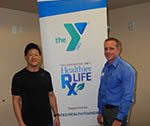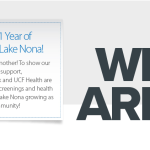
Most people are familiar with concussions in the context of athletic events. However, concussions also happen in everyday life. While most athletes have medical professionals on the sideline to evaluate them quickly if there is concern for a concussion, this is not true of the general public. I wanted to briefly review the cause and symptoms of concussions, as well as provide an overview of the common treatment and course.
A concussion is abnormal mental functioning that occurs after an injury to the brain. Concussions can happen to anyone who experiences a whiplash event or a hit to their head. If you ever experience such an incident (e.g., a car accident, an impact on the head, or a serious fall), symptoms of a concussion are:
-
-
- Confusion, such as not knowing the date or not knowing what had just happened.
- Significant increase in fatigue or, conversely, inability to fall asleep.
- Feeling “foggy” or not alert.
- Sensitivity to bright lights or loud noises.
- Difficulty concentrating.
- Balance problems.
-
If you experience these symptoms, you should immediately remove yourself from the situation where you were injured. With any injury to the head, doctors want to rule out the possibility of other brain injuries that are more serious. When you are evaluated for a concussion, expect to be asked questions about your memory and problem-solving skills. Your balance and coordination also should be examined. Most concussions do not require any medical images of the brain or head. However, it is important to be assessed by a doctor well versed in concussion management to make the determination if additional testing or imaging is needed to rule out other possible brain injuries.
A common misconception about concussions is that you need to “black out” to have one. In fact, you can have a concussion and remain alert the entire time. Unfortunately, another old idea that still persists is that you should not sleep the night after a concussion. Actually, resting is the best way for your brain to recover from a concussion!
Most concussion symptoms go away in one to two weeks with proper treatment. Guidance from a physician can determine if medication changes, physical therapy, or restrictions at work or school might help your concussion resolve more quickly. Concussion care is still an evolving field, and we may find new approaches as more research is done regarding this common injury.


